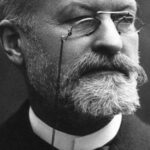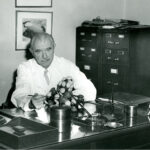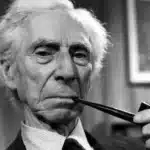Reinhard Selten (5 October 1930 – 23 August 2016) was a German economist. In 1994, Reinhard Selten was awarded the Nobel Prize in Economic Sciences.
Life and Career
Reinhard Selten was born on 5 October 1930, in Wrocław, Poland.
He pursued his education in mathematics and economics, earning a Ph.D. in mathematics from the Johann Wolfgang Goethe University in Frankfurt in 1961.
Selten’s most notable work was in the field of game theory. He developed the concept of “subgame perfect equilibrium,” which is a refinement of the Nash equilibrium, introduced by John Nash.
His groundbreaking contributions helped economists better understand strategic interactions among rational individuals and their decision-making processes in various economic situations.
Selten’s work also extended to experimental economics, where he conducted experiments to test economic theories, providing valuable empirical evidence for the field.
Selten continued his academic and research activities throughout his life. He held various academic positions, including at the University of Bonn and the University of Bielefeld.
Reinhard Selten passed away on 23 August 2016, in Poznań, Poland.
Award and Legacy
In 1994, Reinhard Selten was awarded the Nobel Prize in Economic Sciences jointly with John Harsanyi and John Nash. They were recognized for their groundbreaking contributions to the understanding of game theory and its applications in economics. Selten’s specific contribution was the development of the concept of “subgame perfect equilibrium.”
Selten’s most enduring legacy is his significant advancement of game theory. His concept of “subgame perfect equilibrium” refined the Nash equilibrium, making it a more powerful tool for analyzing strategic interactions among rational individuals. This refinement has been widely adopted in economics and other fields.
Selten also contributed to the field of experimental economics. His pioneering experiments helped bridge the gap between theoretical models and real-world behavior, demonstrating the practical relevance of economic theory.
Throughout his career, Selten played a crucial role in educating and mentoring future economists. His influence extended to the students and researchers he worked with, contributing to the dissemination of his ideas and methods.
Selten’s work continues to inspire researchers and scholars in economics, game theory, and related fields. His ideas have led to numerous follow-up studies and extensions, further enriching our understanding of strategic decision-making.
Tags: 23 August 2016), 5 October 1930, Award for Reinhard Selten, Career of Reinhard Selten, FAQ on Reinhard Selten Reinhard Selten, Legacy of Reinhard Selten, Life of Reinhard Selten, Nobel Prize Laureate, Observer Voice Reinhard Selten, Reinhard Selten, Reinhard Selten 's Birthday, Reinhard Selten Birthday, Reinhard Selten Death anniversary, reinhard selten institute, reinhard selten nobel prize, Reinhard Selten Observer Voice, Tribute to Reinhard Selten, was a German economist











